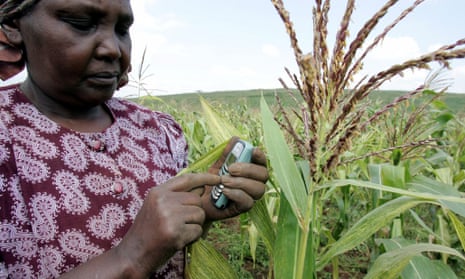How do you deliver affordable and accessible financial services to the remotest communities? This was one of the topics discussed at a seminar in Washington DC last week with panelists Martha Brantley at the Clinton Development Initiative, Leora Klapper at the World Bank, Stephen Kehoe at Visa, Cathleen Tobin at Women’s World Banking, Camille Busette at CGap and Martin Holtmann at International Finance Corporation.
Missed it? We’ve curated key messages from the event.
New models of financial inclusion
Digital payments were described as “truly revolutionary” for developing countries by Leora Klapper, but are not yet widespread - factory workers in Bangladesh are still taking three days to travel to pay their children’s school fees. Better connectivity and wider distribution of affordable broadband is needed to push these systems forward.
Mobile banks and banking mobiles
Banks and mobile operators are engaging in a power struggle over the unbanked. A growing number of banks are trying to replicate the success of mobile money networks like M-Pesa and mobile operators are offering more traditional banking services.
Empowering women
There’s an opportunity for smart interventions when looking at how women save their money. Currently, women save at home or choose to use informal services that can be costly. They need more options offering privacy, security and strengthening agency.
User-centred design
The panel agreed that designing services that meet people’s needs must take priority over the technology you use to deliver them. One member of the audience asked “how can financial service providers create products for groups?”
Reaching remote communities
How do we prioritise financial inclusion in rural areas where there are many competing, critical development issues? In Myanmar, up to two-thirds of farmers have indebtedness from informal borrowing. Martha Brantley said we need to place an emphasis on access to credit for farmers, but we also need to look at creating a ubiquity of financial product models and offering choice. It was even suggested bankers had shied away from rural banking opportunities as they had “spent their whole life trying to get away from the village”.
Scaling up
Stephen Kehoe said providing access is not enough though – usage is key to achieving scale.
Regulation
The seminar explored how to promote ethical financial inclusion rather than exporting bad credit heavy models from west. Martha Brantley said we don’t need to replace cash - but we should look at other ways people store their money like savings as livestock, and work with them towards more secure alternatives.
Regulation helped digital payments succeed in Kenya, Martin Hotmann said, but it can make work more challenging too. Just because there are risks associated with financial products doesn’t mean they shouldn’t be withheld from poor people, he added.
Better infrastructure
Poor infrastructure remains a particularly problematic barrier to adopting digital payment systems.
Financial literacy
Stephen Kehoe says financial literacy programmes are important but to prevent overindepteness clients still need to be informed in real time.
Post-2015
The seminar concluded looking at how far the sector has come, but one question tweeted early on by @Oli_mar to take forward is “how will unbanked solutions factor in to the post-2015 agenda?”
Read more like this:
- 10 Twitter accounts to follow for financial inclusion news and views
- Banks in the DRC: the community that saves together stays together
- Funeral insurance in South Africa: counting the cost of life and death
- Advertisement feature: Agents of change
Join our community of development professionals and humanitarians. Follow @GuardianGDP on Twitter.

Comments (…)
Sign in or create your Guardian account to join the discussion